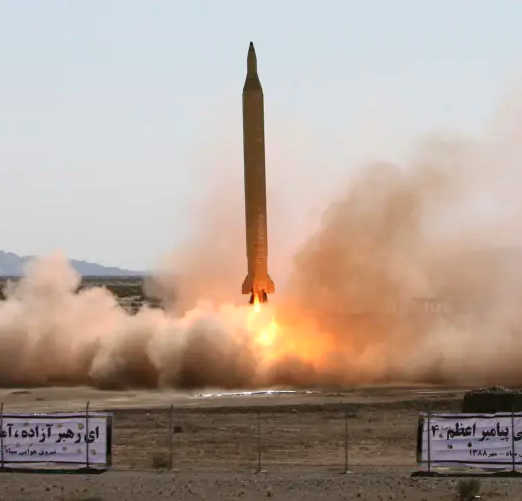The findings from the three European intelligence agencies in 2021 contradict Khamenei’s claims and are likely to fuel a new debate about rejoining the Iran nuclear deal.
A damning new report authored by the Netherland’s General Intelligence and Security Service (AIVD) asserts that the Islamic Republic of Iran attempted to obtain technology in 2020 for weapons of mass destruction.
The Dutch intelligence document, which was published in April, says the security service “investigated networks that tried to obtain the knowledge and materials to develop weapons of mass destruction. Multiple acquisition attempts have been frustrated by the intervention of the services.”
According to the Dutch report, “The joint Counter-Proliferation Unit [UCP] of the AIVD and the MIVD [the country’s Military Intelligence and Security Service] is investigating how countries try to obtain the knowledge and goods they need to make weapons of mass destruction. Countries such as Syria, Pakistan, Iran and North Korea also tried to acquire such goods and technology in Europe and the Netherlands last year.”
The AIVD “conducts investigations, provides information and mobilizes third parties to safeguard the democratic legal order and national security to actively reduce risks and to contribute to foreign policy-making.”
The Netherlands’ MIVD and AIVD intelligence services, according to the report, “conducted intensive research into several very active networks that are involved in proliferation and use various third parties in European countries. Consequently, export licenses were verified and acquisition attempts frustrated.”
Iran’s Supreme Leader Ali Khamenei tweeted in February that his nation is not interested in nuclear weapons. He wrote that Iran’s regime is not pursuing the building of a nuclear weapons device “based on Islamic fundamentals and commands that prohibit weapons that are used for killing ordinary people.”
But the findings from the three European intelligence agencies in 2021 contradict Khamenei’s statement and are likely to fuel a new debate about whether the US should rejoin the heavily criticized 2015 Joint Comprehensive Plan of Action, the formal name for the Iran nuclear deal.
Former US President Donald Trump’s administration withdrew from the JCPOA because it did not ensure that Iran will be barred from developing atomic weapons, according to US officials at the time in 2018.
The Jerusalem Post reported last month that the Bavarian state intelligence agency in Germany said: “Proliferation-relevant states like Iran, North Korea, Syria and Pakistan are making efforts to expand their conventional arsenal of weapons through the production or constant modernization of weapons of mass destruction.”
Also in April, the Post reported that Sweden’s Security Service disclosed in its 2020 intelligence report that the Islamic Republic of Iran sought Swedish technology for its nuclear weapons program.
According to the Swedish intelligence document, “Iran also conducts industrial espionage, which is mainly targeted against Swedish hi-tech industry and Swedish products, which can be used in nuclear weapons programs. Iran is investing heavy resources in this area and some of the resources are used in Sweden.”
